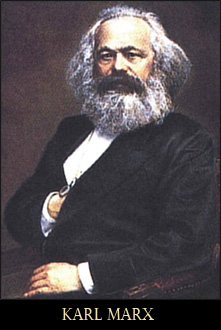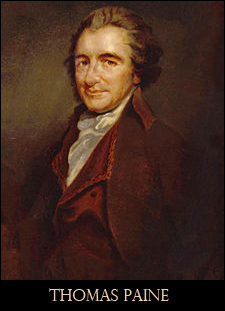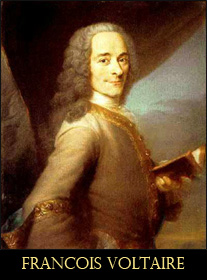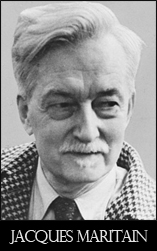GREATEST BOOKS NOT GREAT BOOKS
1. Kolbe Home
2. Kolbe's Greatest Books Library
3. Kolbe's Greatest Books versus Britannica's Great Books
4. Free Market of Ideas
5. Empirical Verification and Logical Demonstration
KOLBE'S Greatest Books versus BRITANNICA'S Great Books
 BRITANNICA'S GREAT BOOKS, which you might have heard of, are not the same as Kolbe's Greatest Books. Kolbe's Greatest Books are all part of the Judaeo-Christian, Greco-Roman Natural Law Tradition; whereas Britannica's Great Books are often antithetical to this tradition. BRITANNICA'S GREAT BOOKS, which you might have heard of, are not the same as Kolbe's Greatest Books. Kolbe's Greatest Books are all part of the Judaeo-Christian, Greco-Roman Natural Law Tradition; whereas Britannica's Great Books are often antithetical to this tradition.
Britannica’s Great Books include thinkers such as Karl Marx, Friedrich Hegel, Sigmund Freud, Charles Darwin, Niccolo Machiavelli, and Jean Jacques Rousseau; these men are atheists, deists, agnostics, anti-Christians, and revolutionaries. Britannica's Great Books collection also includes an additional series of 102 "Recommended Readings" that embrace thinkers antithetical to Christian civilization such as Ivan Pavlov, the father of classical conditioning, Sir James Frazier who endeavored to reduce Christianity to a human construct and the Son of God to a myth. They also include Herbert Spencer, a social evolutionist and cultural determinist, the agnostic Thomas Huxley, and others such as the François-Marie Arouet (Voltaire) and the deist Thomas Paine who waged ceaseless war against Christianity.
According to Paine, the Christian system of faith, is
"A species of Atheism — a sort of religious denial of God. It professes to believe in a man rather than in God. It is a compound made up chiefly of Manism with but little Deism, and is as near to Atheism as twilight is to darkness".
Voltaire signed his letters Écrasez l’infâme! -- "crush the wretch" by whom he meant the Catholic Church. He made her destruction the center of all his efforts. According to Voltaire, statesmen and philosophers should focus all their efforts on destroying the church’s “infamous missionaries”; they should be willing to "risk all things, even to be burned in order to destroy it. Let us crush the wretch! Crush the wretch! Écrasez l’infâme!”
In short, the "Great Books of Western Civilization” are not the “Greatest Books of Christian Civilization.”In fact, the Great Books are often arrayed against Christian Civilization. Is it a good thing,we ask, to introduce young underdeveloped minds to brilliant anti-Christain thinkers such as Hegel and Freud before they have developed critical intellectual skills as well as knowledge and understanding of their own intellectual-tradition?
 Nonetheless, for the very reason that the Great Books are often antithetical to ideas expressed in the Greatest Books, they help students develop dialectical thinking skills, analytical judgment, and substantive evaluation, which are essential to intellectual formation. Nonetheless, for the very reason that the Great Books are often antithetical to ideas expressed in the Greatest Books, they help students develop dialectical thinking skills, analytical judgment, and substantive evaluation, which are essential to intellectual formation.
Consequently, The Great Books do form a part of Kolbe's series to be respectfully approached after students have had a solid formation in their own tradition including studies of history, theology, social science, philosophy, and literature from a perspective of faith and reason, fides et ratio.
Parents and professors need not cower to those who claim that education in the Christian tradition including faith and reason is tantamount to indoctrination rather than the freedom and emancipation toward which liberal education aims:
Faith is not indoctrination. Faith is enlightenment
that helps keep one from being indoctrinated.
Intellectual formation that includes faith and reason is the highest guarantor of freedom. When faith and reason are coupled with higher dialectical studies, including many of the authors of the Great Books, the mind is sharpened, fine tuned, and intellectually challenged thereby leading to the work of further expansion. As a result of higher dialectical studies, the mind is continually challanged and thereby continually exercised leading to increased strenght and new insights, to new discoveries and the joy of finding creative solutions to antithetical challenges coming from many different directions. These challenges tend to sharpen the intellect, enhance focus and increase mental clarity thereby preparing students for life in the “real world.”
FREE MARKET PLACE OF IDEAS
The Kolbe House of Studies advocate a free market place of ideas, but (to avoid the nihilism that often arises in a free arena of ideas where all are considered equal or essentially correct) insists that participants in discussions of these ideas be required to demonstrate their positions either by empirical verification or logical demonstration with examples from the primary texts.
The mind is easily deceived by psycholoigical manipulation and conditionming, by misinformation, by distorted information, confusing logic and undemonstrated principles that cloud intellectual inquiry, which is further exacerbated by:
1. An overly intense mixing of patriotism and faith bordering on idolatry as if faith could be subordinated to a political perspective - error covering itself in the cloak of patriotism.
or
2. A faith perspective overly committed to voices and visions, devoid of any serious intellectual formation, and lacking the requisite humility necessary to attain wisdom or be counseled by it - error masquerading in piety.
These two problems lead to further problems:
1. An overly intense commitment to an ideological perspective, which turns a person into a subservient machine of a political party to the extent that good and bad are often confused by human beings willing to commit evil to achieve a supposed good or worse, to commit an evil while beleiving it to be good.
or
2. The chicanery of half truths and the skewing of evidence to support an otherwise unsupportable ideology. This tendency reaches its extreme when people begin to believe half truths and become fanatically committed to a crusade, peaceful or not, for their dissemination and implementation.
In short, both faith unsupported by reason and reason detached from faith lead to the formation of ideologues (those unwilling or unable to submit to empirical verification and logical demonstration) who should have no rightful place in the realms of authentic education.
EMPIRICAL VERIFICATION and LOGICAL DEMONSTRATION
To avoid these and other related challenges to the peaceful pursuit of wisdom and human happiness, teachers as well as students should be challenged to support their ideas by either empirical verification or logical demonstration.
In authentic education, reason is regent (in a spirit of charity). Aquinas defines law as a dictate of reason; law cannot validly be a force of the will as some ideologues or totalitarian rulers would have it; nor does faulty or undemonstrated reason have the force of law. Law is a rule of reason it is not a dictate of the will (minority or majority). If a teacher's lesson is to be valid, it must have the force of reason and demonstration behind it.
 All students have a voice and a right to freely exercise it. Authority, when it is licit, is to be respected. But, by itself, it does not, and cannot, arbitrarily determine matters of right and wrong. In a college or university setting, right and wrong, good and bad, are substantiated by the objective presentation of demonstrated arguments supported by empirical verification or logical demonstration (preferably by both) given in a collegial spirit of mutual esteem and respect for the freedom and dignity of all participants in a discussion who agree to bind themselves by the laws of reason and valid demonstration. All students have a voice and a right to freely exercise it. Authority, when it is licit, is to be respected. But, by itself, it does not, and cannot, arbitrarily determine matters of right and wrong. In a college or university setting, right and wrong, good and bad, are substantiated by the objective presentation of demonstrated arguments supported by empirical verification or logical demonstration (preferably by both) given in a collegial spirit of mutual esteem and respect for the freedom and dignity of all participants in a discussion who agree to bind themselves by the laws of reason and valid demonstration.
Education can be as destructive to human dignity in a democracy as it can be in a totalitarian state. Liberal education, Jacques Maritain stresses, “is not an education that inculcate slogans in children and regiments them for democracy in the manner that a fascist education inculcates fascist slogans in children and regiments them for service of a fascist state. To train along lines inspired by animal training is precisely the special mark of the totalitarian states. . . .Let them keep it! They will die of it!"
Thus, it is the eprspwective of the faculty in the Kolbe House of Studies that The Great Books of the Western World should introduce students to the broad anti-Chirstian intellectual tradition after they have explored and become conversant with their own, and even broader, Christian tradition, which includes Judaism, the natural law tradition of classical antiquity, and the writings of Christian savants, philosophers, theologians, scientists, saints and and statesmen available in Kolbe's Greatest Books.
The Great Books of the Western World provide opportunities for the further development of thinking outside of the Christian Tradition, for dialogue, and dialectical conversation, which enhance discussion, make for an exciting venture in higher education, strengthen arguments and stimulate thinking as well as further intellectual development within a collegial framework that respects each participant as a fellow sojourner in pursuit of wisdom and ultimately of human happiness. When the Great Books are presented this way, they are presented properly.
Without the Greatest Books, the Great Books often become a stumbling block rather than a blessing.
|



